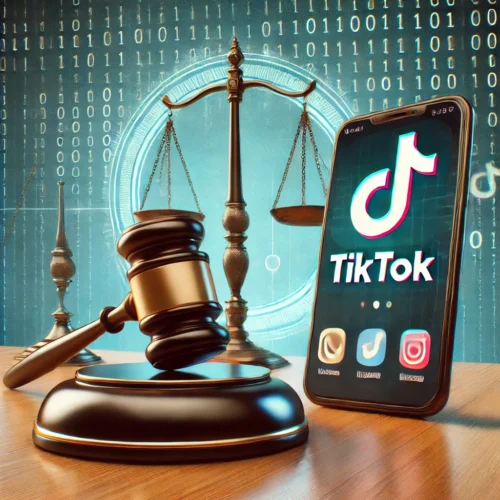TikTok Faces Legal Battle in the U.S. Over National Security Concerns
Once again, the big social media app is back in the news: TikTok has now become the subject of controversy in the United States. Recently, the US government tagged TikTok as a national security threat owing to its origin in China. The parent company of TikTok, ByteDance, may be under pressure from the Chinese Government to access American user data or even influence the algorithm that was altered for political purposes, claimed the U.S Justice Department.
The amendment mandates that TikTok sell its operations in the United States to a non-Chinese buyer or face a complete ban in the country by January 2025. This law brought about an immediate legal fallout as TikTok approached the U.S. courts challenging the move. TikTok argued that the law infringed free speech rights provided under the First Amendment of the U.S. Constitution, which stipulates that no evidence has proved such security threats.
The Justice Department contests this argument by stating that TikTok does indeed pose a “real and serious national security threat.” It claims that the application could be used in order to sway public opinion or manipulate social media narratives according to the interests of the Chinese government. Therefore, the concern is that the platform will be misused in the way of spreading disinformation or social manipulation targeting millions of American users.
In contrast, TikTok reconfirmed its stand, refusing to back down and stating that it would never hand over user data from the United States to China. It asserted the application was functioning independently and asserted that forced divestment was impossible within the proposed timeframe and that this was the first time such an unprecedented move was proposed against a single platform.
It’s more than the case of TikTok-it may be the precedent for the foreign-owned tech companies in the United States. This has become a focus case for other companies that have the same kinds of ownership structures, potentially changing the future of regulation and digital trade relations between the U.S. and China.
The deadline given to TikTok for compliance or risking a ban falls on January 2025. This ruling for the case will have far-reaching consequences for one of America’s most popular social media applications and might even determine policies on digital privacy, national security, and freedom of expression on a global scale. As the legal battle intensifies, US TikTok users and creators have no idea what the future of the service may be, nor what might be in store for their digital livelihoods.
As we stay on top of this saga of court action that could yield massive changes in North America regarding social media, ponder what the impact may be: it may mark a critical inflection point for international technology firms that ply their trade in one of the world’s most important markets in terms of bargaining with respect to privacy, security, and regulation.
